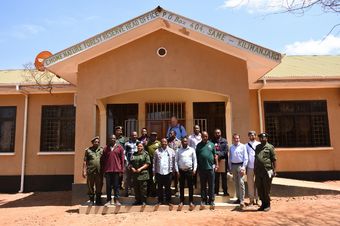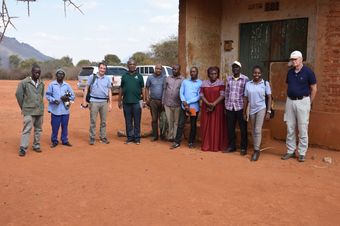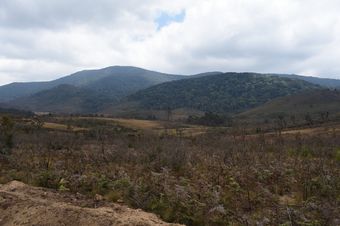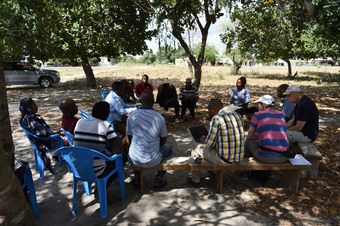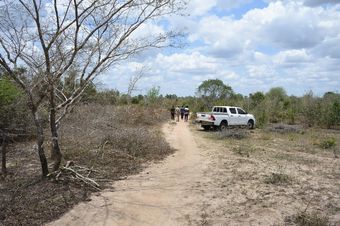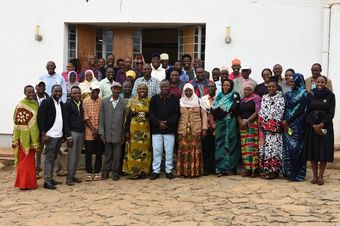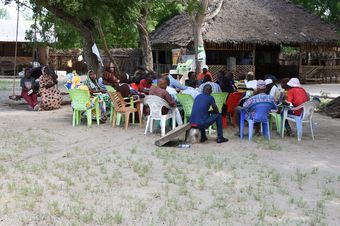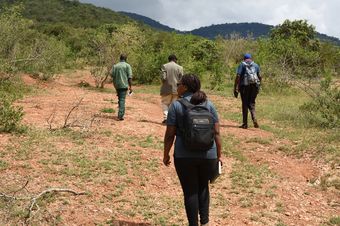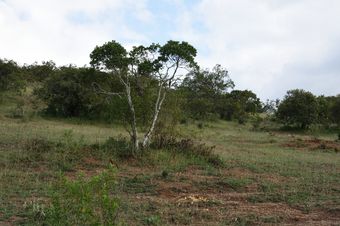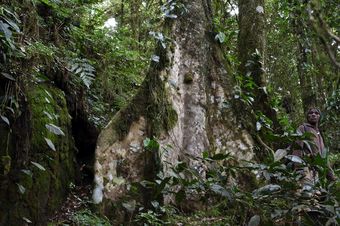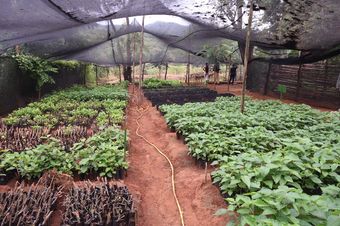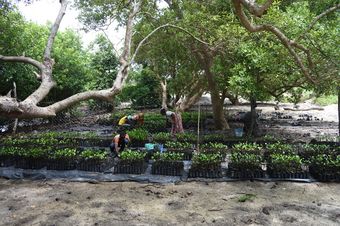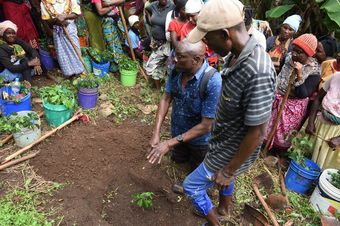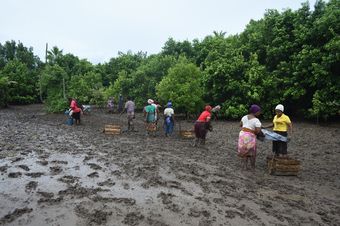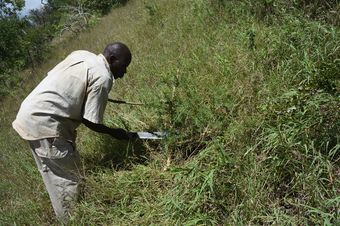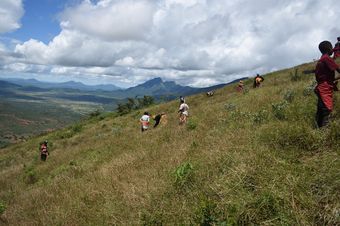Project implementation PRO-NDC-ACT
Project implementation PRO-NDC-ACT
Selection of the project regions
In a first step, socio-economic and ecological background information was collected from three possible project regions: Bagamoyo (Coast Region), Pangani (Tanga Region) and Southern Pare Mountains (Kilimanjaro Region). The above regions lie within the natural ranges of mangrove forests (Pangani), East African coastal forests (Bagamoyo & Pangani), and Eastern Arc montane forests (Pare Mountains).
During an initial field trip to the three potential project regions from 28.09.2022 to 06.10.2022 the project team identified communities that have been affected by deforestation but still have natural forests within their area of influence and show interest in forest restoration and sustainable forest management.
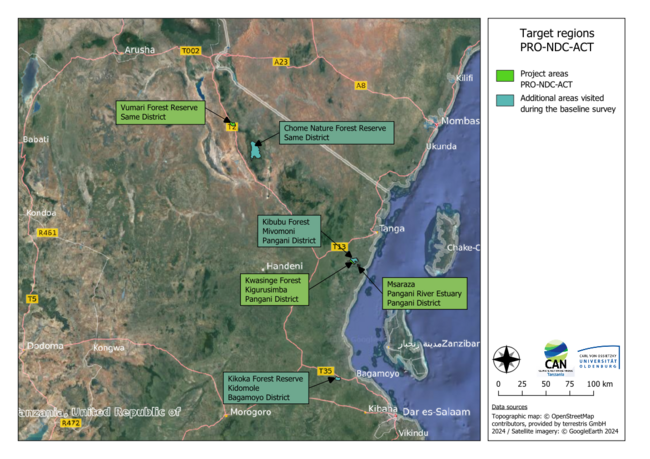
Based on the findings of the initial field trip and predefined criteria for site selection the visited regions were evaluated with respect to their suitability for the implementation of the proposed project measures. Finally, the following sites were selected:
- Kwasinge Forest in Kigurusimba Village (East African Coastal Forest) in Pangani District, Tanga Region
- Mangrove belt of the Pangani River Estuary in Msaraza Village in Pangani District, Tanga Region
- Vumari Forest Reserve (submontane dry forest of the Eastern Arc) in Same District, Kilimanjaro Region
In the selected regions forest restoration initiatives will be established. To this end, affected village communities will be closely involved in all project activities.
Project implementation committees, trainings and workshops
A major focus of PRO-NDC-ACT lies on local community participation throughout all stages of the project. This includes the involvement of the affected local communities into planning and implementation of all relevant project activities and the development of ownership over the local forest restoration and management processes among community members. We understand comprehensive community participation as key to safeguard the long-term sustainability of the project outcomes.
To facilitate community participation and progress of the project activities when CAN-Tanzania is not on the ground, Local Project Implementation Committees (LPICs) were established in early 2023 in Vumari, Msaraza and Kigurusimba. Members were drawn from existing Village Natural Resources Committees and other interested community members. The LPICs were approved by General Village Assemblies. CAN-Tanzania trained the LPIC members on forest restoration and management, tree nursery establishment and operation as well as good governance.
Two workshops were held in each project region (Same and Pangani) involving local stakeholders from village and district levels to prepare the planned forest restoration activities. The first workshop (30.03.2023 in Same, 03.04.2023 in Pangani) focused on the identification of key challenges for forest conservation and explored pathways to sustainable forest management. During the second workshop (22.-23.06.2023 in Same, 27.-28.06.2023 in Pangani) locations for the establishment of tree nurseries were selected, optional sites for tree planting as well as target tree species were identified and participatory action plans for forest restoration were developed.
Vegetation surveys
Comprehensive excursions to the submontane dry forests of the Eastern Arc in Vumari Forest Reserve, to the transition zone between the mangrove belt and coconut plantations in the estuary of Pangani River as well as to Eastern African Coastal Forests in Kigurusimba were conducted in June 2023. In basic vegetation surveys supported by local experts the tree species composition of degraded and intact forest sites along environmental gradients was determined. This provided the basis for the selection of target tree species that will be raised in the tree nurseries.
Raising seedlings in tree nurseries
In September 2023 three tree nurseries were established that are still operative:
- A nursery mainly for Eastern Arc Forest species in Vumari,
- a nursery for mangrove species in Msaraza and
- a nursery for Coastal Forest species and fruit trees in Kigurusimba.
Until the end of the year 2023 more than 20.000 seeds were planted in the three tree nurseries. The established tree nurseries will serve as crucial learning-hubs to spread the knowledge and skills on raising and planting indigenous tree species acquired by the LPIC members among other local communities.
Tree planting on deforested sites
In April 2024 planting of tree seedlings in Vumari and Msaraza commenced. In both villages many local community members participated in the tree planting activities. Ahead of the tree planting in the target sites, a brief training was conducted with all participants. Target sites in Vumari Forest Reserve are old clearings for abandoned farms within the forest as well as fresh clearings at the reserve boundary. In Msaraza open spaces in abandoned coconut plantations affected by increasing salinity are targeted for mangrove planting.
Farmer managed natural regeneration in degraded forest
Farmer managed natural regeneration (FMNR) is a straightforward method to increase tree cover in degraded forest, woodland and bushland, that involves repeated pruning of selected shrubs or trees and protection of these individuals against grazing and cutting. In April 2024 FMNR was initiated in Vumari Forest Reserve. A group of about 70 volunteers from the local communities was trained on the FMNR method and subsequently pruned shrubs and trees on about 50 ha of degraded forest in Vumari Forest Reserve. It is planned to conduct FMNR in additional sites in Vumari Forest Reserve and to repeat pruning regularly in all target sites.




